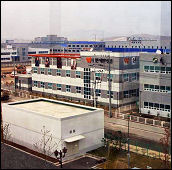
ABOVE: Kaesong Industrial Park
The White House has been ratcheting up U.S. sanctions against North Korea, culminating in Executive Order 13570 on April 18, 2011, which banned all imports from North Korea. Today the Office of Foreign Assets Control (“OFAC”) finally got around to promulgating implementing regulations for that order.
The regulations, in order to provide “immediate guidance,” did little more than cite the Executive Order and say that all transactions prohibited by the Executive Order were now prohibited by the regulations. OFAC’s comments in the public notice promised to issue more expansive regulations later on “which may include additional interpretive and definitional guidance” (emphasis supplied).
The Executive Order and by extension the new regulations contain the troublingly vague prohibition on “the importation into the United States, directly or indirectly, of any goods, services, or technology from North Korea” (emphasis supplied). Obviously the “directly or indirectly” language is going to cause the most heartburn to U.S. companies. That suggests that products from South Korea or China that contain components or parts from North Korea would be subject to the import ban. These new Nork sanctions contain no rules of origin or anything else to clarify the scope of the language covering “indirect” imports.
An employee of the Congressional Research Service, speaking a few days ago before a forum hosted by the Korea Economic Institute, said that the “indirect’ language was designed to target such parts and components.
Dick Nanto, a specialist in industry, trade and foreign affairs with the Congressional Research Service (CRS), noted that the April executive order prohibits the direct and indirect entry of North Korean goods.
“The Treasury Department’s Office of Foreign Assets and Control said goods, services and technologies from North Korea may not be imported into the United States directly or indirectly without license,†he said at a forum hosted by Korea Economic Institute.
He said the wording “indirect†was inserted in consideration of Congress’ objection to the inclusion of Kaesong products in the South Korea-U.S. free trade agreement, or KORUS FTA.
“That includes any country – China, South Korea – any country that uses a product of North Korea in the process or as part of the process,†Nanto said.
The Kaesong industrial complex is on the border of North and South Korea. It was created in 2002 as a result of South Korea’s engagement policy with the North. Over 100 South Korean firms now employ more than 40,000 North Koreans in Kaesong.

 Posted by
Posted by  Category:
Category: 

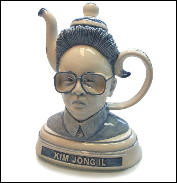
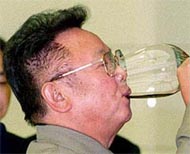 According to
According to 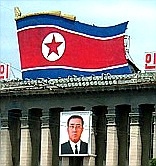 A UN report
A UN report 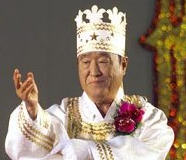 Rev. Sun Myung Moon’s media arm, the Washington Times, has made a shocking discovery: lawyers represent clients. Washington Times reporter Jim McElhatton reveals this horrifying discovery in a
Rev. Sun Myung Moon’s media arm, the Washington Times, has made a shocking discovery: lawyers represent clients. Washington Times reporter Jim McElhatton reveals this horrifying discovery in a 

